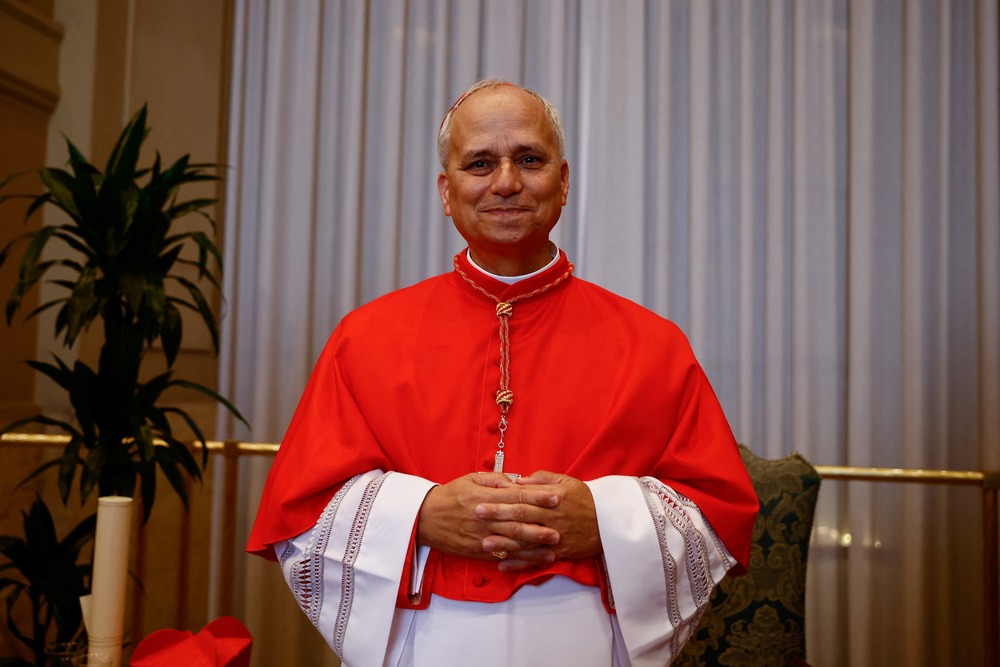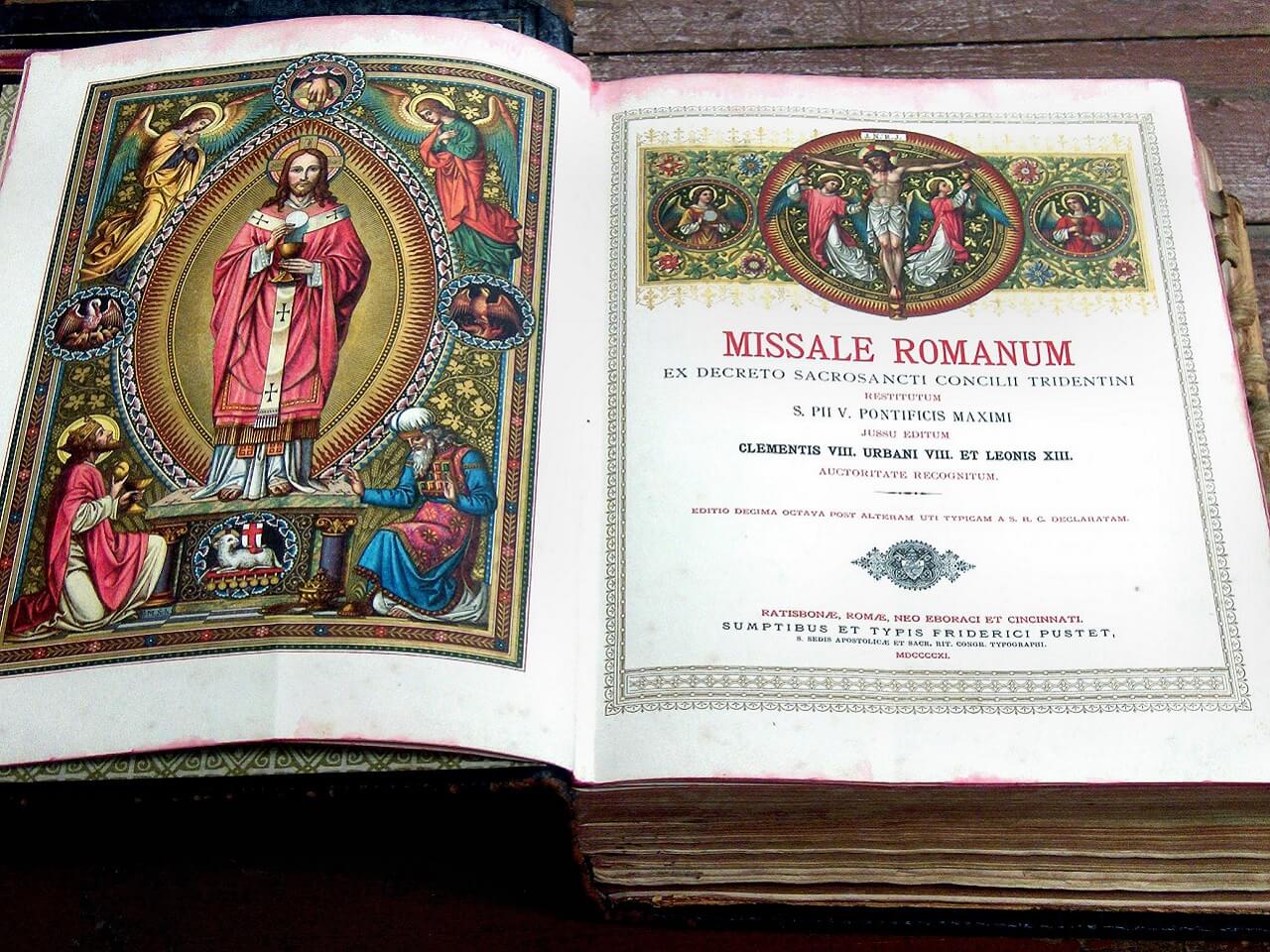Cardinal’s former diocese denies claim of clerical sexual abuse cover-up
Three women have alleged a Peruvian diocese failed to punish a pair of priests, who they accuse of sexually abusing them as minors. The Diocese of Chiclayo denied the accusations of a coverup, saying in a Sept. 10 statement the victims were personally attended to by the then-bishop, Cardinal Robert Prevost — now prefect of the Dicastery […]



Three women have alleged a Peruvian diocese failed to punish a pair of priests, who they accuse of sexually abusing them as minors.
The Diocese of Chiclayo denied the accusations of a coverup, saying in a Sept. 10 statement the victims were personally attended to by the then-bishop, Cardinal Robert Prevost — now prefect of the Dicastery for Bishops — in April 2022.
Their accusations and the findings of a local investigation, the diocese said, were sent to the Dicastery for the Doctrine of the Faith, which investigates accusations of clerical sexual abuse, in July 2022. The Vatican investigation found insufficient evidence, according to the diocese.
Peruvian prosecutors also investigated, but found insufficient evidence and ruled the statute of limitations had passed. The accusations were reported Sept. 8 by the television news program Cuarto Poder, capturing attention in Peru and abroad.
“What the Cuarto Poder program affirmed — that Cardinal Robert Prevost covered up for the priest, Eleuterio Vásquez González, and that he remained silent in face of the complaints — is not true,” the diocesan statement said.
“From the moment of the reception of the complaint, and maintaining the right to the presumption of innocence, the church has proceeded according to its guidelines, both in the preliminary investigation, and in the the application of the precautionary measures: removal from the parish and the prohibition of public exercise of the priestly ministry.”
The diocese also asked Cuarto Poder to “rectify” its report, adding, “It is not true that the Catholic Church has turned its back on the alleged victims. On the contrary, they were left free to file complaints in the civil courts and were offered the necessary psychological help if they required it.”
Prevost, who was elevated to prefect of the Dicastery for Bishops in April 2023, did not immediately respond to an email seeking comment sent by OSV News Sept. 14.
The Cuarto Poder investigation focused on accusations of three women, who alleged inappropriate touching by Vásquez as young girls.
Ana María Quispe told Cuarto Poder that her family had a close relationship with Vásquez. Her mother baked him a cupcake for the priest’s birthday and told Quispe, then 9 years old, to “take it to him.” Vásquez was not there, but another priest, Father Ricardo Yesquén, opened the door and invited her in, Quispe said.
Once inside, “He sat down and sat me on his lap and started kissing me,” Quispe told Cuarto Poder.
At a later date, Vásquez invited her on a mission trip some five hours from Chiclayo, a city in northern Peru. After celebrating a Mass, they retired for the night, Quispe said — with the priest forcing her to share a bed, she said.
“I froze. I pretended to be asleep, I didn’t sleep at all,” she told Cuarto Poder. “And then I woke up a few hours later. I got up to vomit.”
Quispe has previously spoken publicly on her abuse accusations, taking to social media in November 2023 and saying that she initially had interacted with the accused priests through a children’s mission group, according to Peruvian media. Auxiliary Bishop Guillermo Cornejo of Lima, apostolic administrator in Chiclayo at the time, subsequently reopened the investigation in 2023, according to the diocesan statement.
“The victims were summoned again but one did not attend: Ana María Quispe, who, when she was notified, publicly said that she would not attend, citing reasons of security,” the diocese said on Sept. 10.
Another victim, who was identified as Lucía, said she was also invited to participate on a mission to the same parish as Quispe. Lucía was also forced by Vásquez to spend the night with him away from Chiclayo. She said she stopped the priest’s advances by pushing back and “scratching his head.”
She told Cuarto Poder, “Even when he said goodbye to me, I saw him upset. So I’m left with the feeling that it was me who did wrong. If something happened, it was my fault.”
A woman identified as Ruth also alleged abuse, saying she met Vásquez at age 8 and he was “like a brother” to her parents. She said he forced himself on her at age 13 prior to a Mass.
“In the homily, he started to say that priests are people, they commit errors, and we have to know how to forgive,” Ruth told Cuarto Poder. “It was like a homily totally directed at me.”
Cuarto Poder alleged that Vásquez told church superiors that he committed sexual abuse. The Diocese of Chiclayo disputed that claim, saying the priest “has never admitted to having committed the acts attributed to him.”
The diocesan statement said Vásquez “accepted” the suspension of his ministry and left the diocese to reside with family in Santa Cruz province. It described Yesquén as seriously ill and “he does not have the capacity to defend himself, therefore a case cannot be opened against him. He has not exercised priestly ministry for years.”
Prevost first arrived in Peru as a Chicago-born missionary with the Augustinian order in 1985. He returned to the South American country in 2014 after Pope Francis appointed him bishop of Chiclayo.
Before being appointed prefect of the dicastery in January 2023, he was still a bishop of Chiclayo when Quispe first approached the diocese to denounce the two priests, and two other alleged victims of abuse by the same priests followed with their allegations.
On Feb. 14, 2024, the pope appointed another Augustinian, Bishop Edinson Farfán Córdova, to the Diocese of Chiclayo.
Rodolfo Soriano-Núñez, a Mexican sociologist who tracks cases of clerical sexual abuse in Latin America, said the Diocese of Chiclayo created “listening centers” for handling abuse complaints and training priests, seminarians and laity in preventing sexual crimes. A commission overseeing the listening centers was composed of priests, a lawyer and four psychologists.
“Cardinal Prevost was doing something,” Soriano-Núñez told OSV News. “Certainly more than the Latin American average.”
The alleged victims issued a statement on Sept. 11, in which they contradict the diocesan statement and say that in fact, after reporting the story to then-Bishop Prevost on April 5, 2022 — to November 2023, when one of them went public on social media — “no investigation was carried out, nor were the precautionary precautionary measures for the protection of the faithful, boys and girls (undertaken) … the case was filed and archived,” they said.
According to the statement, the victims said that as “proof” of their assertions, they declare that “there is no decree for the opening of a preliminary investigation, no decree of precautionary measures,” and that they were “never summoned to testify during this period, by any investigator.” They also said the name of the investigator has not been revealed. The victims asked the dioceses to publish the decrees within 48 hours.
In another surprising twist of events, a canon lawyer representing the victims, Father Ricardo Coronado Arrascue, has been sanctioned by the Peruvian bishops conference, which said, in an unsigned Aug. 22 statement, that the lawyer could no longer practice as a canonist in Peru and therefore could not continue to defend his current clients.
His native Diocese of Cajamarca informed the priest Aug. 29 that a complaint had been filed against him with the Dicastery of the Clergy at the Vatican for an alleged unspecified crime “contra sextum,” or against the Sixth Commandment, and that the same Dicastery offers him the possibility of making a voluntary request to the pope to ask for dispensation from the priesthood under penalty of “the start of an administrative criminal trial.”
On Sept. 14, the conference published another statement on its website — this time signed by the Permanent Council of the bishops’ conference, saying that “according to canon 1483 of the Code of Canon Law, Rev. Coronado cannot receive approval to work as a lawyer in ecclesiastical courts, as a result of which he cannot continue to sponsor ongoing cases.”
The Peruvian said that the lawyer is being subjected to “canonical-ecclesiastical proceedings in the criminal sphere, for complaints that are being processed in the corresponding instances.”
According to a Spanish language website infovaticana.com, Coronado’s lawyer asked in defense of his client — canon lawyer representing the lay victims: “Is it customary for episcopal conferences to publish the proceedings against priests or bishops? Why are Ricardo Coronado Arrascue’s defenses uncomfortable? Do they only allow canon lawyers to defend themselves if they are in a servile disposition to some bishops?”
In their Sept. 11 statement, the alleged victims published several images of the accused priest, Vásquez, celebrating Masses in public spaces on important occasions such as Easter, despite the restrictions the diocese claimed in its Sept. 10 statement are in place.














